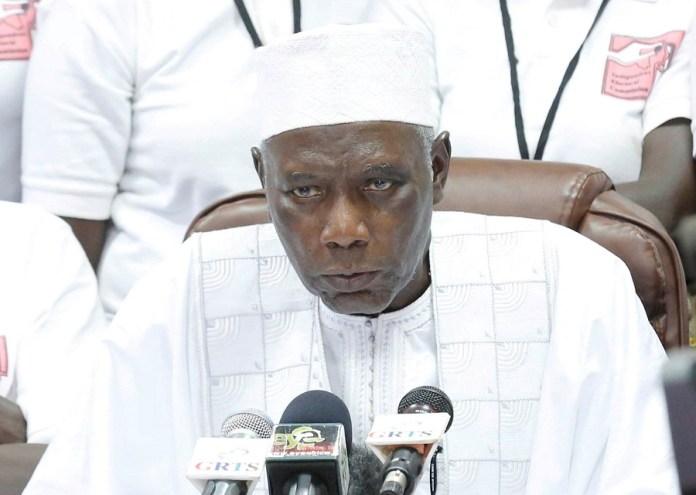By Omar Bah
The Independent Electoral Commission is reportedly intending to go against the Gambia Public Procurement Authority’s advice to contract a Canadian company with the supply of electoral materials and issuance of the country’s voter’s cards.
The Electoral Service International company, reportedly picked by the IEC for the issuance of the country’s biometric voter’s cards, has been supplying electoral materials and issuing voter’s cards for the past years.
The company’s parent body had started business with the IEC in 1996. The company later went into bankruptcy. It re-emerged with a new name ESI.
ESI was competing with Dermalog, a German company,
Ekemp International, a Chinese Company and Smart Business Group, a Gambian owned company.
According to our source very close to the GPPA, the Electoral Commission is adamant to contract next year’s voter registration and supply of election materials to ESI despite advice by the GPPA to consider Dermalog.
“The GPPA has made it emphatically clear to the IEC that ESI wasn’t the most responsive company that could execute the IEC election materials supply contract. This followed the IEC’s recommendation for the Canadian company to be awarded the $3million contract,” an anonymous source told The Standard.
“IEC has always been doing this process single-handedly without involving GPPA and they are the only procuring authority that oversees all government public procurements”.
According to our source, the GPPA has written to the IEC to reevaluate and justify as to why they thought that ESI was the most responsive bidder. “GPPA wants to know why the IEC has decided to choose ESI to execute the contract”.
The GPPA is responsible for ensuring a transparent, efficient and economic public procurement, providing a fair opportunity to all prospective suppliers by preventing fraud, corruption and other malpractices in public procurement.
Reacting to the allegations, the IEC chairman Alieu Momarr Njai said: “The IEC Act protects and empowers the commission to ensure that it is free from control or influence of either the president or the authorities”.
However, Njai continued: “Despite that, we feel because this is a major issue, we should make the offer on public tender in accordance with the GPPA regulations. We had four bidders and on the bid day, all of them sent in representatives and we invited the GPPA as well. We opened all the biddings and went through the process in accordance with the rules and regulations. We had a committee to address the issue. This committee met and went through all the tenders and selected ESI”.
The IEC chairman added: “I don’t want to go through the process detailing what the other bidders’ shortcomings were but as professionals, when it comes to election materials, we came to the conclusion that because of the situation of time between when we need these materials and the tender opening, awarding ESI was the safest for us to go with because they fulfilled all the conditions. None of the other companies has proven to us that they were involved in the supply of electoral materials and we didn’t want to go into the process of giving a tender to someone that we are not satisfied with and ESI from day one has been supplying the IEC with all the materials. Personally, I would have loved to see another company contracted because you cannot stick with one company all the time. You need to change but to change you must be satisfied that the one you are moving to is better than the one you know and that was not the case. This is why we decided to stick with ESI.”
Chairman Njai said with the experience they have with ESI over the past years, they have “no reason to doubt the company”.
The IEC Chief Electoral Officer, Samboujang Njie said despite the fact that the electoral commission feels ESI “is the best out of the rest, they are still consulting and have not finalised signing the contract with ESI just yet, contrary to claims in some quarters.”
He said the company the GPPA was leaning towards had the most expensive offer with some 3 million euros which is far beyond the IEC’s budget.
Jammeh’s company
He said it is absolutely wrong for anyone to claim that ESI was identified by Yahya Jammeh to supply and issue the country’s voters’ cards. Njie said Jammeh had never interfered with procurement matters at the IEC.
The selection process was based on four criteria; technical specification, individual firm experience, similar past experience on registration and pricing.
But the IT and procurement officer at the IEC said “none of the bidders met these criteria.”



